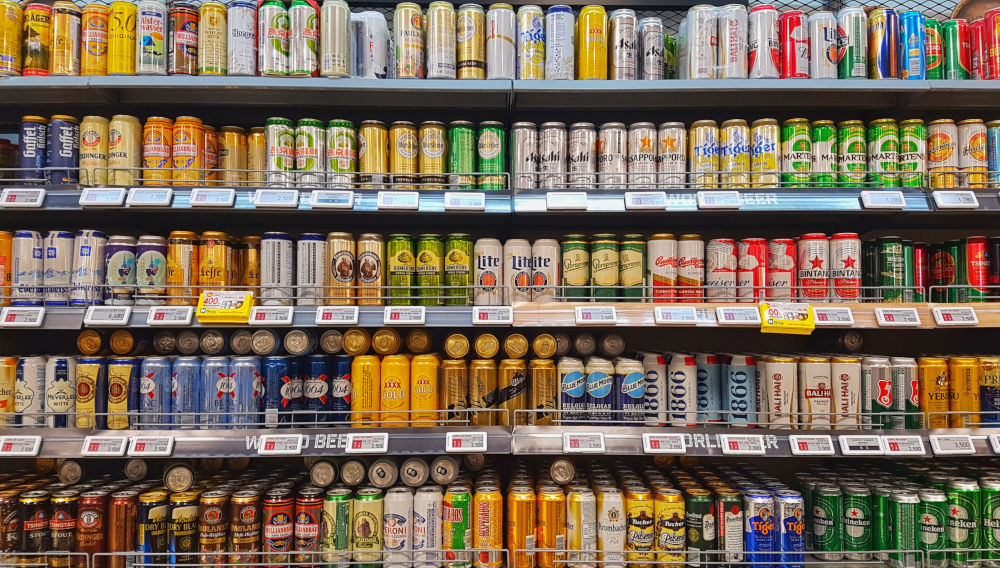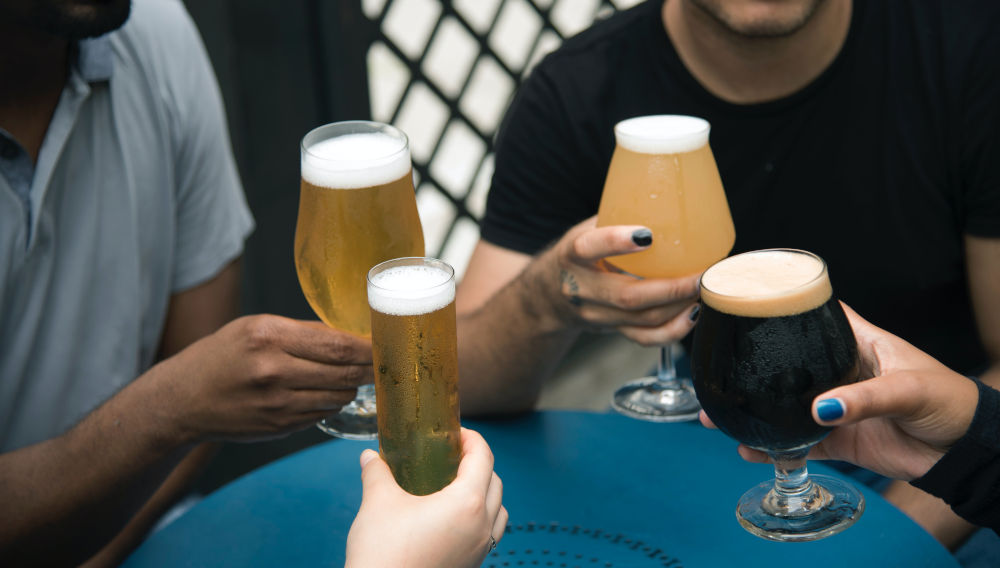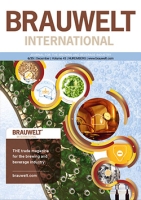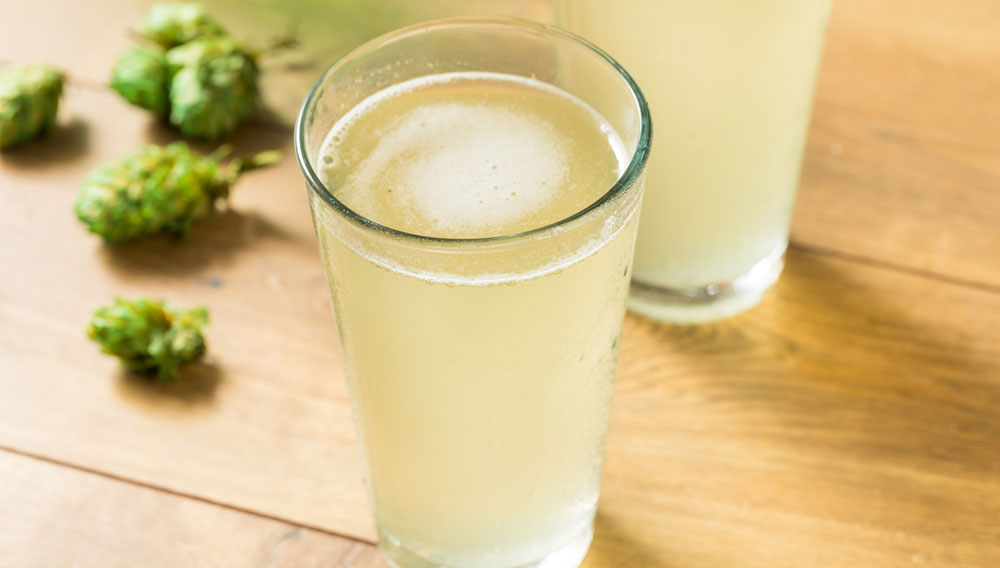
Maltless hop water | In her newest market report, BRAUWELT author Elva Ellen Kowald gives a short overview of the history of using hops as an essential beer ingredient and focuses then on what she calls the second hop revolution: Water infused with hops, an emerging beverage category that came into being in the wake of a new health awareness.
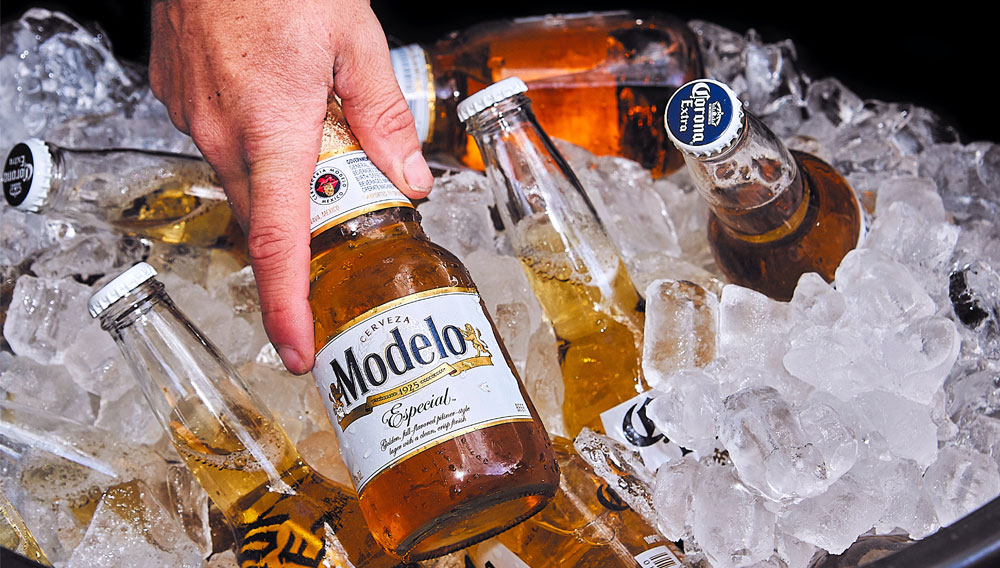
US antitrust | Luck plays a big and often unacknowledged part in a company’s success. Constellation Brands struck it lucky twice in the past 30 years: first in 1996, when Grupo Modelo awarded them an evergreen contract to import Corona Extra into the US; then in 2013 after trustbusters at the US Department of Justice forced a settlement on AB-InBev during its takeover of Grupo Modelo, which turned Constellation into an independent, fully integrated, and economically viable beer industry competitor.

Focus on quality standards | While industry luminaries have been talking about the need for brewing quality standards since the beginning of the craft brew movement, Ray Daniels, the author of the seminal book Designing Great Beers, went one step further in 2007 when he decided to focus on quality standards for the customer experience at the point of sale – whether in a bar, a restaurant, retail store, or brewery tap room. Daniels was prescient in calling out the critical importance of competent and knowledge-based servers in the industry – and that everything they do, from their professionalism to their knowledge of beer and beer styles, to their presentation in the glass, to their care of the product, can make or break a consumer’s idea of a beer, a brand, or the craft industry as a whole.

Beer podcasts | Just as there are cable networks and streaming services for every topic and taste, so are there beer podcasts. Just name a beery topic and you’ll find a podcast for that, whatever your interest – the latest industry news; interviews with brewers and “beer celebs”; beer festivals and competitions; home brewing; brewing science and technology; and not least, banter about life and drinking. Elva Ellen Kowald introduces us to the fascinating world of beer podcasts and takes a closer look at three podcasters.

New perspective | As crisis-hardened Boomers continue to retire, Gen Xers are taking over brewers’ C-suites in Europe. They may bring with them a new perspective on what it means to be a corporate leader, but they have scant experience in handling political risks. In today’s world, risk is a far more complex and demanding issue than it was twenty or even ten years ago.
Latest BarthHaas Report | It is always eagerly awaited, and on 25 July 2023 the time had come again: as part of an online press conference, hop trader BarthHaas from Nuremberg presented its report 2022/2023 with the latest figures on the world hop and world beer market.
United Kingdom | Despite a high number of reported brewery closures and tough trading conditions, the total number of breweries in the UK has risen in the second quarter of 2023 according to figures recently released from the SIBA UK Brewery Tracker.
BarthHaas Report 2022/2023 | The international beer market remained in growth mode in 2022: The total output volume of the 40 biggest brewers worldwide rose by 4.3 percent to roughly 1.67 billion hectoliters. Growth was not evenly divided among all companies, however: The overall picture is dominated by rising output at the big breweries, but many regional brewers found it difficult to make up for the volume losses sustained during the pandemic.

An American tradition | For decades, tens of millions of Americans have tuned into the National Football League’s (NFL) annual Super Bowl to see the best of the best fight it out on the field. Many of them watched simply to see the commercials, especially those by Anheuser-Busch InBev (AB-InBev) which has held exclusive beer advertising rights to the game since 1989. Over the years, AB has spent many millions of dollars to lock in the hearts and souls of the viewers with iconic, award-winning cinematic-quality ads – memorable, heart-rendering stories of American life, tear-inducing tales of the Budweiser Clydesdales, as well as funny animations with football-playing Bud Lite bottles, talking frogs, and Bud-worshipping crabs. Many of these ads had very little to do with beer, but watching them became a very American tradition. But this tradition ended in 2023 with Super Bowl LVII.

Russia exit | After Russia’s invasion of Ukraine in February 2022, Heineken and Carlsberg flagged they would support Western boycotts and exit the country by the end of December, while AB-InBev sought to sell its stake in the Russian joint venture to its partner, Turkish brewer Efes. But Heineken and Carlsberg had to extend their own deadlines. Finding a trustworthy Russian buyer has proven difficult, and no one knows if the Russian government will subsequently approve their deals. For the time being it is all up in the air.


